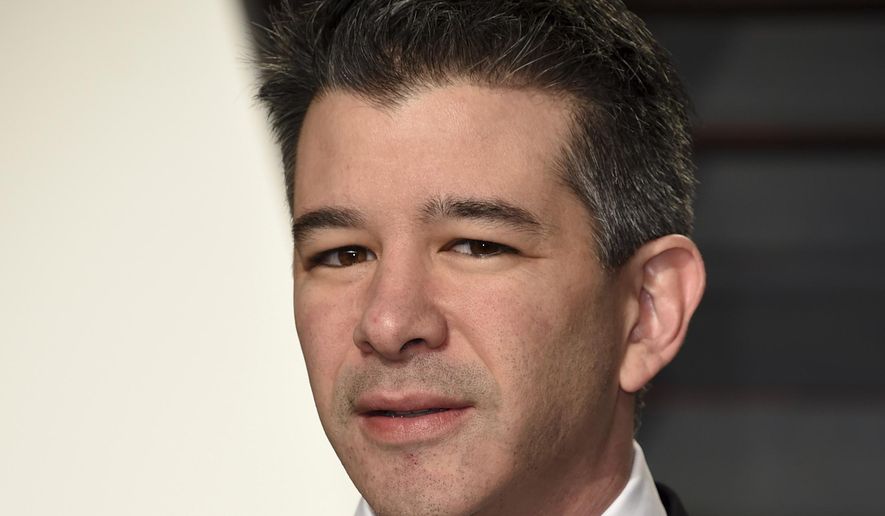Uber founder and CEO Travis Kalanick is taking a leave of absence following a report issued to employees Tuesday that recommended, among other things, a thorough review of his record running the company.
The report is the result of a high-profile, monthslong investigation led in part by former U.S. Attorney General Eric H. Holder Jr. on the ride-hailing giant’s management and practices, which have been under fire.
The San Francisco-based company has faced a flurry of accusations that top executives mishandled sexual assault cases, evaded law enforcement and used unfair tactics to compete with its rivals.
The report’s 47 recommendations include increased board independence, holding executives accountable with performance reviews, improving the human resources department and creating an oversight committee. The report also exhorted the company to “institute and enforce clear guidelines on alcohol consumption and the use of controlled substances” and “prohibit romantic or intimate relations between individuals in a reporting relationship.”
When Mr. Kalanick does return — a date that was not announced — his duties will also be reduced and his authority shared with a yet-to-be-named chief operating officer.
Mr. Kalanick’s temporary removal is one of a series of turnovers in the company’s upper echelons. On Monday Emil Michael, senior vice president for business, left the company, and last week, Eric Alexander, an Asia executive for the company, was fired for mishandling a case in which an Uber driver raped a woman in India. In March Uber President Jeff Jones resigned, citing beliefs “inconsistent” with those of the company.
It’s a sharp comedown for a company that became a leader in the industry and has been valued at more than $60 billion. After its 2010 debut in San Francisco as a car service company that allowed customers to hail cabs from their phones, Uber spread around the globe and expanded its services, offering rides as well as meal delivery and moving assistance.
But trouble has been mounting for the company in the past year. In February former Uber engineer Susan Fowler published a blog post claiming she was sexually harassed by an Uber manager and that personnel officials dismissed her complaints. Ms. Fowler also revealed that just 3 percent of Uber’s employees are female and that many have complained of sexual harassment.
In response to Ms. Fowler’s article, Uber hired law firm Perkins Coie to investigate female employees’ complaints. The firm gathered 215 incident reports and fired 20 employees after the investigation.
Uber is also under investigation by the Department of Justice for allegedly using a software called “Greyball” to avoid police detection in regions where it wasn’t allowed to operate.
Mr. Kalanick said in an email to the company’s more than 14,000 employees that “the ultimate responsibility for where we’ve gotten and how we’ve gotten here rests on my shoulders.”
“For Uber 2.0 to succeed, there is nothing more important than dedicating my time to building out the leadership team,” he continued, according to Bloomberg News. “But if we are going to work on Uber 2.0, I also need to work on Travis 2.0 to become the leader that this company needs and that you deserve.”
Uber investor Mitchell Green, founder of Lead Edge Capital, told CNBC on Tuesday that he thinks Mr. Kalanick should stay at Uber, noting that Mr. Kalanick also cited personal troubles related to the recent death of his mother.
“I don’t know if it should be in the CEO role,” Mr. Green said, “but he is a visionary.”
But Eric Schiffer, entrepreneur and CEO of the Patriarch Organization, a venture management company, said he was less optimistic about Mr. Kalanick’s role in the company.
“I think they have an incredibly visionary and talented CEO whose biggest obstacle is the mirror,” said Mr. Schiffer. “Unless he re-enters with the skill set and the maturity, this is just going to be an even bigger combustion. The board has a duty to confront this with him. They’ve been too timid.”
Mr. Schiffer added that he thinks the Covington report’s recommendations, particularly to hire women, will help change the culture at Uber.
“I think the recommendations will benefit and make the company money,” Mr. Schiffer said. “Having women in management roles is smart business.”




Please read our comment policy before commenting.